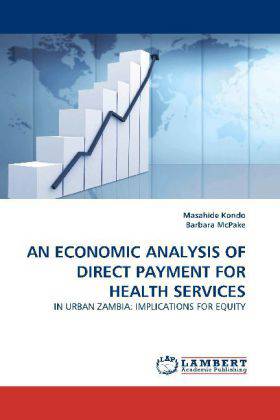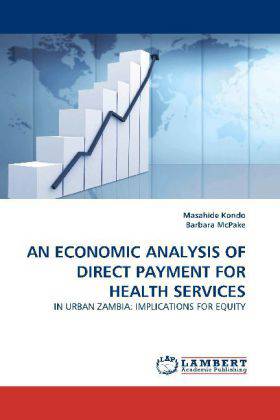
Bedankt voor het vertrouwen het afgelopen jaar! Om jou te bedanken bieden we GRATIS verzending (in België) aan op alles gedurende de hele maand januari.
- Afhalen na 1 uur in een winkel met voorraad
- Gratis thuislevering in België vanaf € 30
- Ruim aanbod met 7 miljoen producten
Bedankt voor het vertrouwen het afgelopen jaar! Om jou te bedanken bieden we GRATIS verzending (in België) aan op alles gedurende de hele maand januari.
- Afhalen na 1 uur in een winkel met voorraad
- Gratis thuislevering in België vanaf € 30
- Ruim aanbod met 7 miljoen producten
Zoeken
AN ECONOMIC ANALYSIS OF DIRECT PAYMENT FOR HEALTH SERVICES
IN URBAN ZAMBIA: IMPLICATIONS FOR EQUITY
Masahide Kondo, Barbara McPake
Paperback | Engels
€ 96,45
+ 192 punten
Omschrijving
The thesis discusses health financing policy, introducing or enhancing direct payment for health services in low income countries from a viewpoint of equity through theoretical and empirical economic analysis using the case of urban Zambia. It analyses equity implications of alternative direct payment mechanisms to user fee. These alternative payment mechanisms are compared with the theory of consumer's choice in an econometric framework. Two theoretical models: demand for alternative payment mechanisms and demand for health services under chosen direct payment mechanisms, are elaborated applying expected utility theory and the law of demand, respectively. These models illustrate the effects of fee schedule, income, perceived health status and perceived quality of care on consumer's demand for health services. These demand models also predict the theoretical equity implications of alternative payment mechanisms. These theoretical explorations are empirically tested with data from the study field.
Specificaties
Betrokkenen
- Auteur(s):
- Uitgeverij:
Inhoud
- Aantal bladzijden:
- 432
- Taal:
- Engels
Eigenschappen
- Productcode (EAN):
- 9783838365756
- Verschijningsdatum:
- 28/05/2010
- Uitvoering:
- Paperback
- Afmetingen:
- 152 mm x 220 mm
- Gewicht:
- 630 g

Alleen bij Standaard Boekhandel
+ 192 punten op je klantenkaart van Standaard Boekhandel
Beoordelingen
We publiceren alleen reviews die voldoen aan de voorwaarden voor reviews. Bekijk onze voorwaarden voor reviews.









